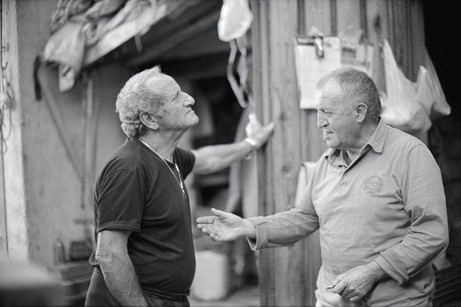Pescina
Social Change in a Rural Town With a Fascist Past in Abruzzo, Italy
Jane Katharina di Renzo, Alina Fedorenko, Andreas Günther, Lukas Hersemeyer, Urte Kaunas, David Maharam, Daniela Sanchez
In September 2013, a group of photography students at the BTK University of Applied Sciences travelled to Pescina, a small town in Abruzzo, Italy. Pescina is the birthplace of the Italian writer Ignazio Silone, whose bestseller Fontamara, published in 1930, described the hard lives of the farmers there and the emergence of fascism. Today, Pescina is an average rural town in Italy outside the reach of the usual tourism. It suffers from problems typical of many European agrarian regions: unemployment, migration to the cities, vacant buildings, xenophobia, and right-wing nationalist tendencies. Whether in Brandenburg, Germany, or in Abruzzo, small towns and villages can seem like abandoned cocoons of a once bustling life. During the ten-day trip, the students had the opportunity to take a good look at various aspects of life in Pescina.
Berliner Technische Kunsthochschule
23.10. – 18.12.2014
Vernissage 23.10.2014 7:00 pm
Finissage 18.12.2014 7:00 pm
Location
Berliner Technische KunsthochschuleBernburger Straße 24
10963 Berlin
https://www.facebook.com/btkfh?fref=ts
Mon–Fri 9 am–7 pmMon - Fri 9 - 19 h
Public transport
U2, S1, S2, S25 Potsdamer Platz, S1, S2, S25 Anhalter Bahnhof, Bus M29, M41, M45, M85
Admission price
Free admission

